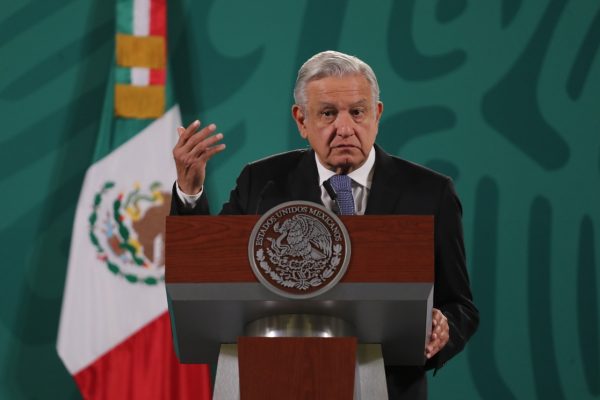by Andres Oppenheimer
The Oppenheimer Report.- It sounds like a joke, but Mexico’s President Andrés Manuel Lopez Obrador has proposed that Cuba be declared a “World Heritage Site” for being an “example of resistance” against U.S. aggressions.
But, in fact, it would make more sense to declare Cuba a “World Museum of Failure” for its self-inflicted descent into one of the planet’s most backward countries.
Speaking at a July 24 ceremony attended by Latin American foreign ministers, Lopez Obrador praised Cuba’s defense of its “dignity,” and blamed the U.S. “blockade” — as he refers to the U.S. trade embargo — for the island’s crisis.
He didn’t say a word about the Cuban dictatorship’s brutal repression of thousands of peaceful demonstrators on July 11. Nor did he mention that Cuba’s regime has not allowed a free election in the past 62 years and is responsible for at least 3,051 executions by firing squad and another 1,258 extrajudicial executions since the 1959 revolution, according to the Cubaarchive.org database.
Amazingly, the Cuban regime’s victimization narrative — its claim that its economic and social disaster is caused by U.S. trade sanctions — continues to find support among some Latin American presidents.
In reality, the U.S. embargo on Cuba, imposed in 1962 in response to its nationalization of U.S. companies without paying compensation, has not been the cause of the country’s chronic bankruptcy. Cuba conducts normal trade with more than 70 countries, including — to a limited extent — the United States.
As I noted in a recent column, the United States is the largest exporter of food and agricultural goods to Cuba. In addition, about 500,000 U.S. tourists visit Cuba every year, and U.S. residents send an estimated $3.5 billion a year in family remittances to the island. The United States is one of Cuba’s top income sources.
Spain’s former President Felipe Gonzalez, a democratic socialist, told me in an interview last week, that the U.S. embargo could be blamed for perhaps up to 30 percent of Cuba’s economic fiasco, “but 70 percent of it can only be attributed to a mistaken policies that have been carried out for the past six decades” by the island’s regime.
According to most economic data, Cuba was one of Latin America’s most advanced countries before the 1959 revolution. Sure, there were pockets of misery, which the Fidel Castro regime addressed with the help of massive subsidies from the former Soviet Union, but the island already was doing well in health and education compared with other countries in the region.
In public health, Cuba’s mortality rate of 32 per 1,000 live births in 1957 was already the lowest in Latin America and the 13th lowest in the world, according to United Nations data. Cuba ranked ahead of France, West Germany, Belgium, Israel, Japan and Spain, all of which eventually surpassed Cuba in this indicator.
In education, Cuba before the revolution was ranked fourth-highest Latin American country in infant literacy.
Today, Cuba is in shambles. After the regime increased wages by up to five times earlier this year, most Cuban workers today make about $90 dollars a month at the black-market exchange rate. Better paid workers, such as doctors, make about $120 a month.
But with an inflation rate estimated at between 500 percent and 900 percent this year, most goods are either unavailable or out of reach for most Cubans.
A friend told me in a telephone call from Havana that he went to the supermarket earlier this week, and couldn’t find meat, rice, oil or soap. “And when you find something, it’s so expensive that there’s no way you can buy it.”
Even compared to other Communist countries, such as China and Vietnam, Cuba’s performance has been lousy.
“Cuba in 1959 was much more socially advanced than China and Vietnam, two countries that have also had socialist market economies,” says University of Pittsburgh economist Carmelo Mesa-Lago, one of the best-known analysts of the Cuban economy, told me. “Today, both China and Vietnam are much better off than Cuba in most social indicators.”
The president of Mexico’s statement was shameful. If Cuba is an “example” of anything, it’s of a dictatorship that has brought to its country hunger, exile and death.
by Andres Oppenheimer
Source: The Oppenheimer Report



